-
Car Reviews
- All reviews
- Midsize SUVs
- Small cars
- Utes
- Small SUVs
- Large SUVs
- Large cars
- Sports SUVs
- Sports cars
- Vans
Latest reviews
- Car News
-
Car Comparisons
Latest comparisons
- Chasing Deals
An engineering-led update for MY24 brings new electric motors, enhanced batteries, sportier drive and greater range to the Polestar 2
It’s not often in modern times that a model-year update introduces engineering changes as extensive as the Polestar 2’s for its MY24 refresh.
It looks a little different from the outside – a new filled-in grille panel is the extent of it – but underneath it features new-generation electric motors, larger batteries in the top two variants, and a switch from front- to rear-wheel drive in the lower two variants, plus a rear-drive bias in the AWD flagship.
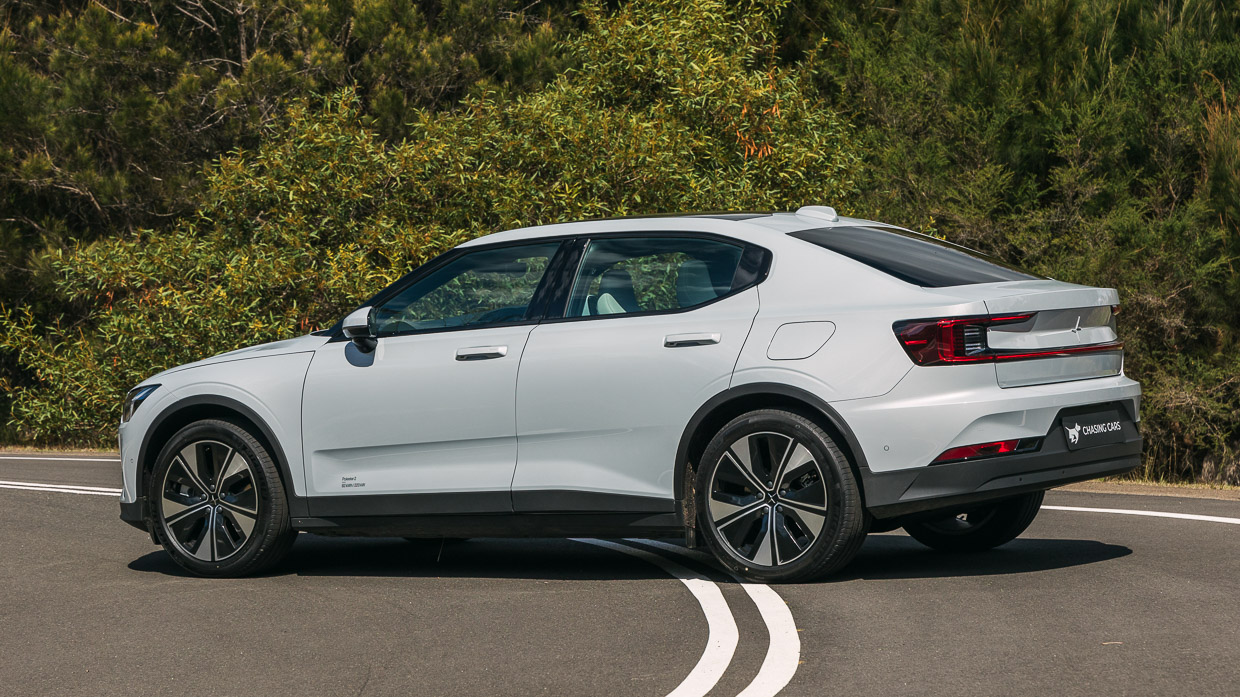
The MY24 Polestar 2 becomes one of the few examples in automotive history where a car has had its driven wheels switched – following two British cars, the FWD Triumph 1300/1500 (1965-76) and the identical-bodied RWD Triumph Toledo/Dolomite (1970-80), and the FWD MG ZT (2001-05) and RWD MG ZT V8 (2003-05).
Polestar claims the MY24 update can travel up to 22 percent further, consume up to nine percent less energy and charge up to 34 percent faster. And those improvements are most obvious in the mid-spec Long Range rear-wheel drive model tested here.
Its new electric motors increase power to 220kW (up from 170kW) and torque to 490Nm (up from 330Nm) while battery size increases from 78 to 82kWh (75 to 79kWh usable) in Long Range guise, while the Standard Range remains 69kWh (67kWh usable).
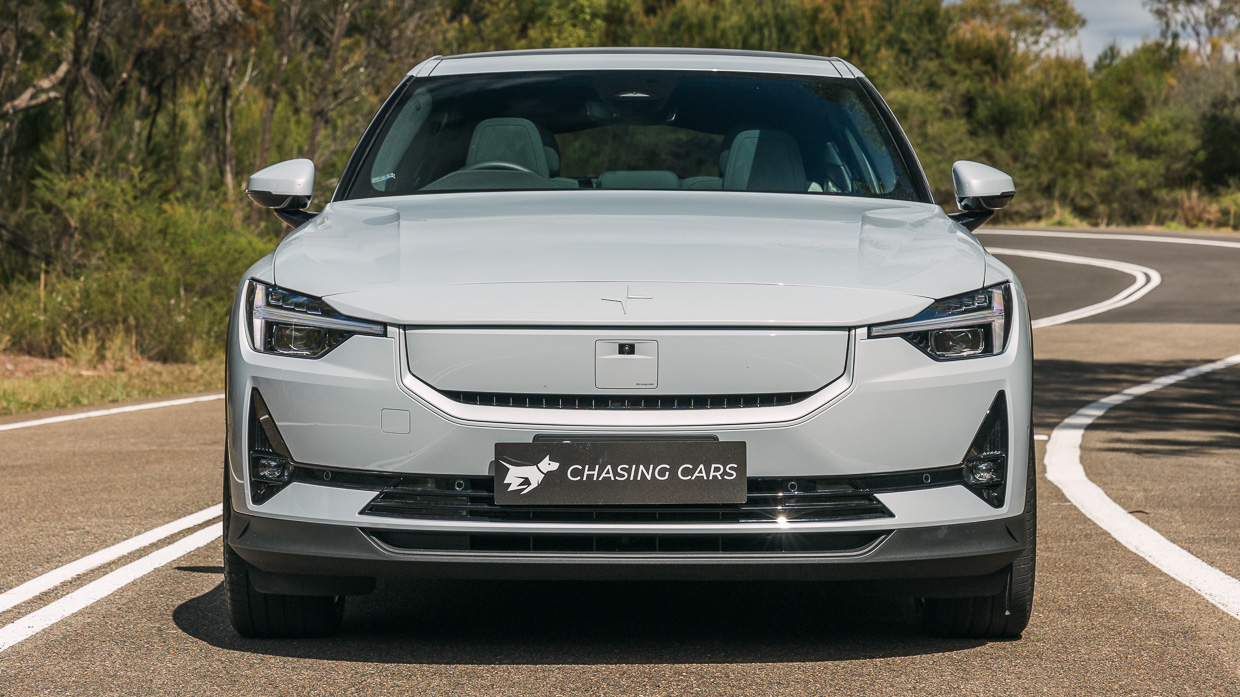
This improves its claimed 0-100km/h time to a rapid 6.2 seconds (down from 7.4sec), its WLTP range to 654km (a 103km increase) and its 10-80 percent charging time to 28 minutes using a DC fast charger.
In comparison, the 67kWh Standard Range Polestar 2 now offers 200kW/490Nm, achieves 0-100km/h in a claimed 6.4 seconds, and has a WLTP range of 532km.
The top-spec MY24 Dual Motor AWD version gets bumped to 310kW/740Nm (350kW with Performance Pack), drops its 0-100km/h time to 4.5 seconds (4.2sec with Performance Pack) and extends its WLTP range to 591km.
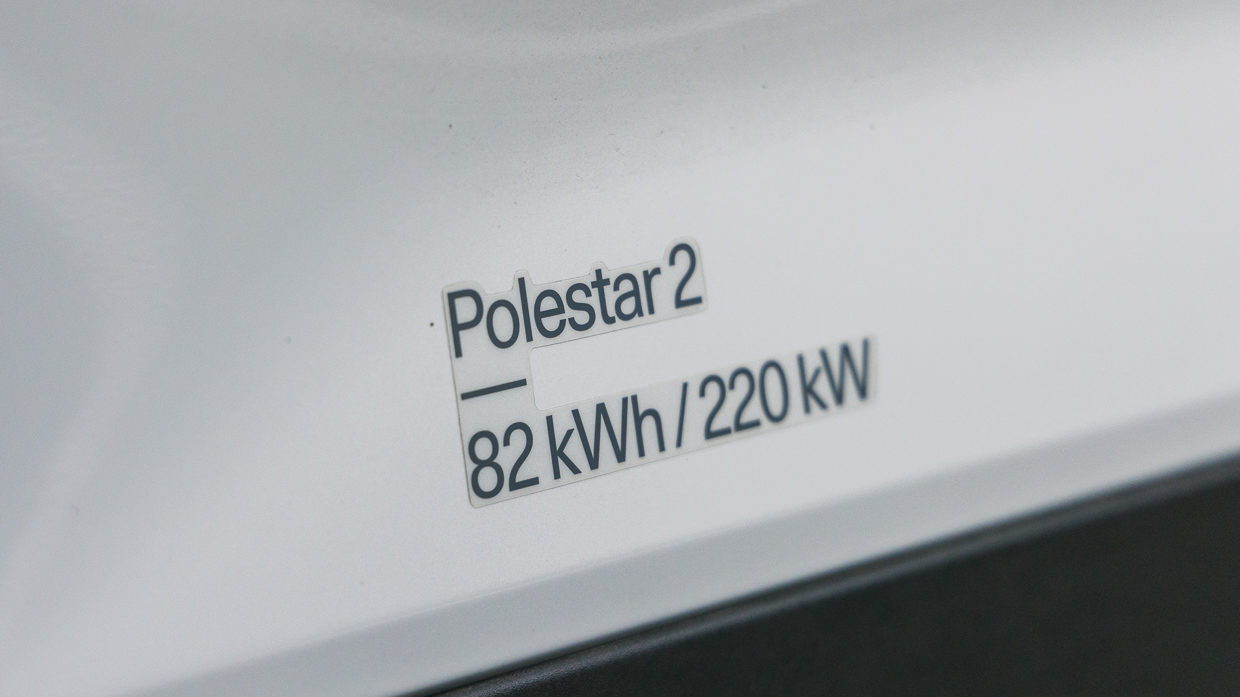
Equipment also improves, with wireless phone charging, a blind-spot information system with steering support, cross-traffic alert with brake support, rear AEB with collision warning, a 360-degree camera and auto-dimming rear-view mirrors now standard on all models.
And the suspension has been revised to improve the previous model’s notoriously lumpy ride.
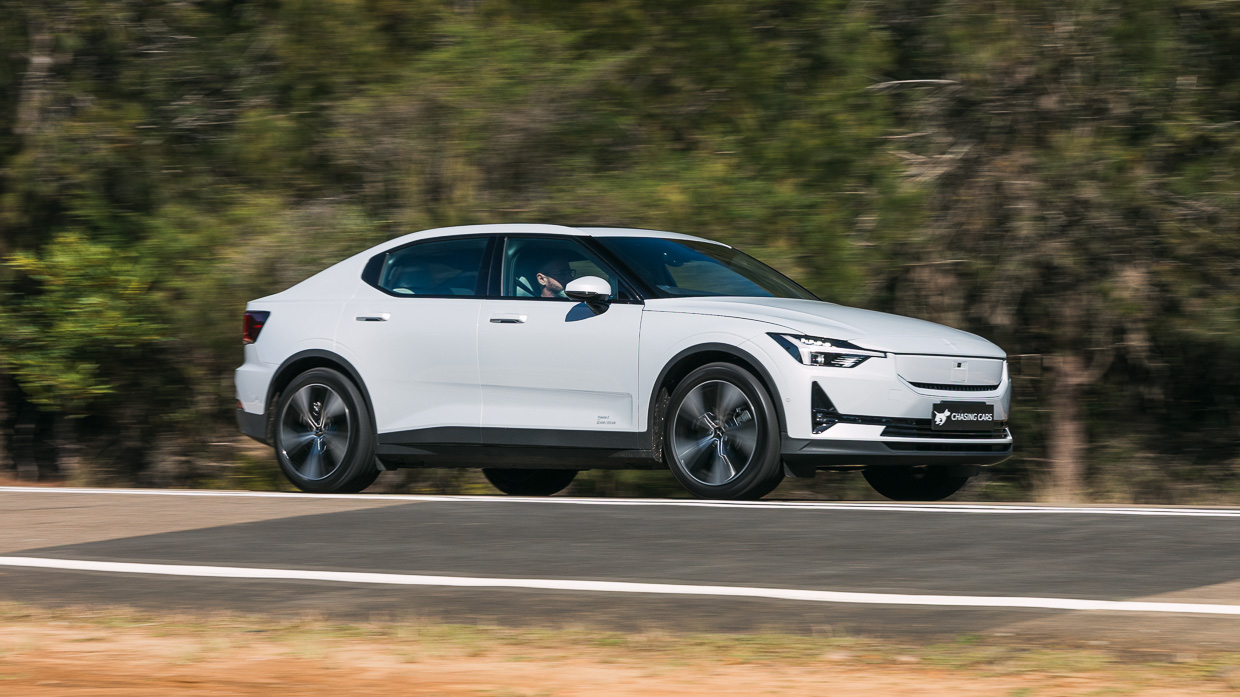
Moderate pricing increases apply across the range, starting with the $67,400 Standard Range RWD (up $3500 from its front-drive predecessor), followed by the $71,400 Long Range RWD (up $3000) and $76,400 Long Range Dual Motor AWD (also up $3000).
The Polestar 2 competes with the recently updated Tesla Model 3 (from $61,900 before on-road costs), the new BYD Seal ($49,888) and let’s not forget Chasing Cars’ 2023 Car of the Year – the Hyundai Ioniq 6 – now priced from $65,500.
As well as the aforementioned upgrades, the Polestar 2 Long Range’s standard equipment list includes:
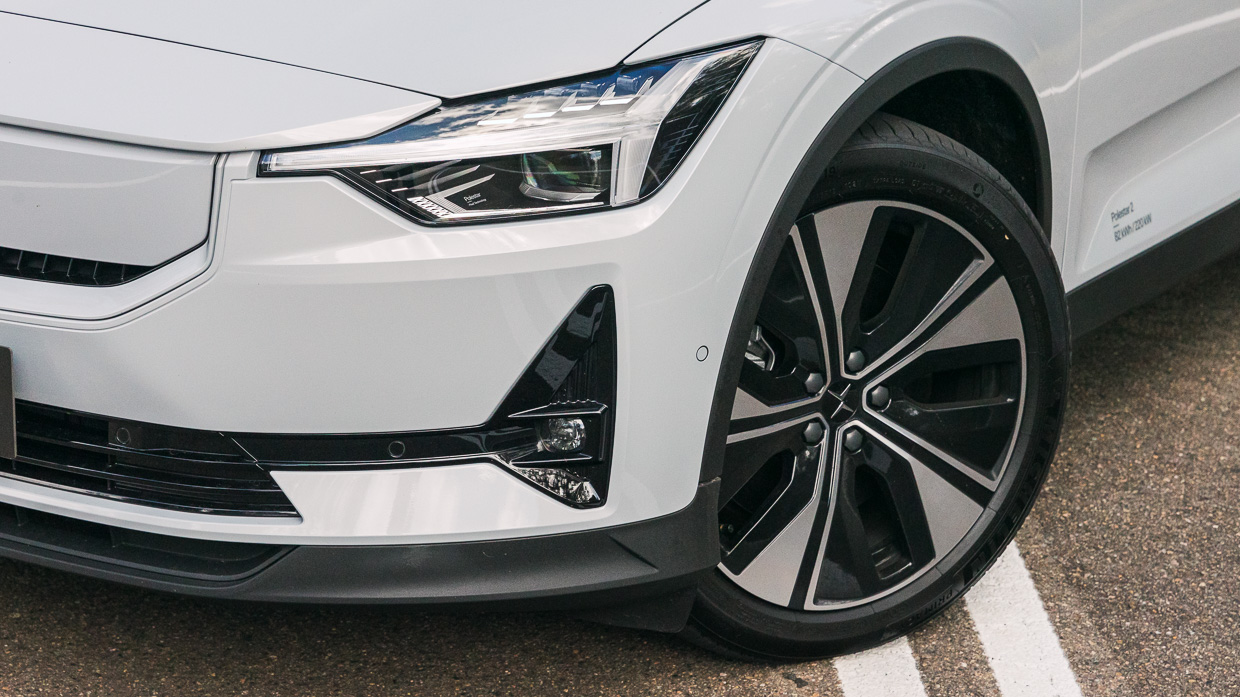
Our test car also featured optional zinc-coloured ‘animal-welfare’ Nappa leather trim ($6000, including front-seat ventilation and light-ash deco trim inlays) and two optional packs – the Pilot pack ($3500) and Plus pack ($6000).
The Plus pack brings a heap of extra equipment, including:
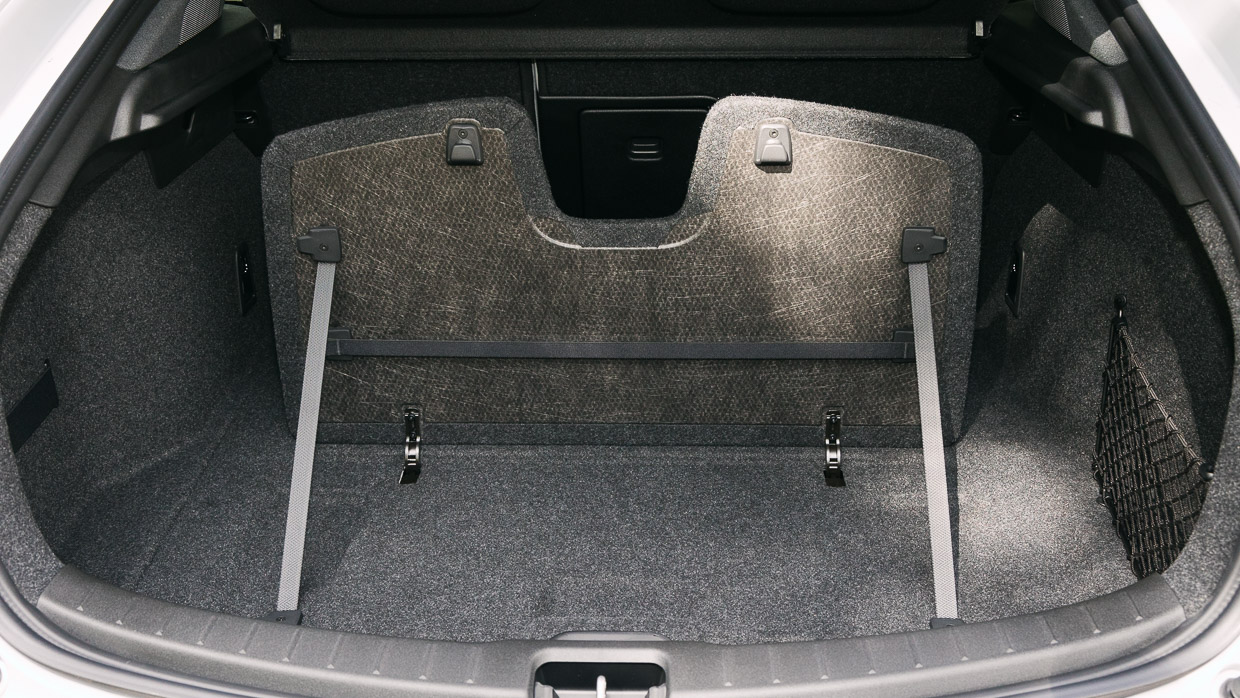
As outlined in the safety section, the Pilot pack includes:
The Polestar 2 has always been a competent drive dynamically, with neutrally balanced handling, keen steering response and a degree of driver involvement. But the previous front-drive Polestar 2 wasn’t everything it could’ve been.
Given its relatively non-sporting role in the line-up, its fidgety, jiggly ride was a constant source of irritation. So in the switch to rear-wheel drive, Polestar has also revised the 2’s suspension tune to enhance comfort, and the result is promising.
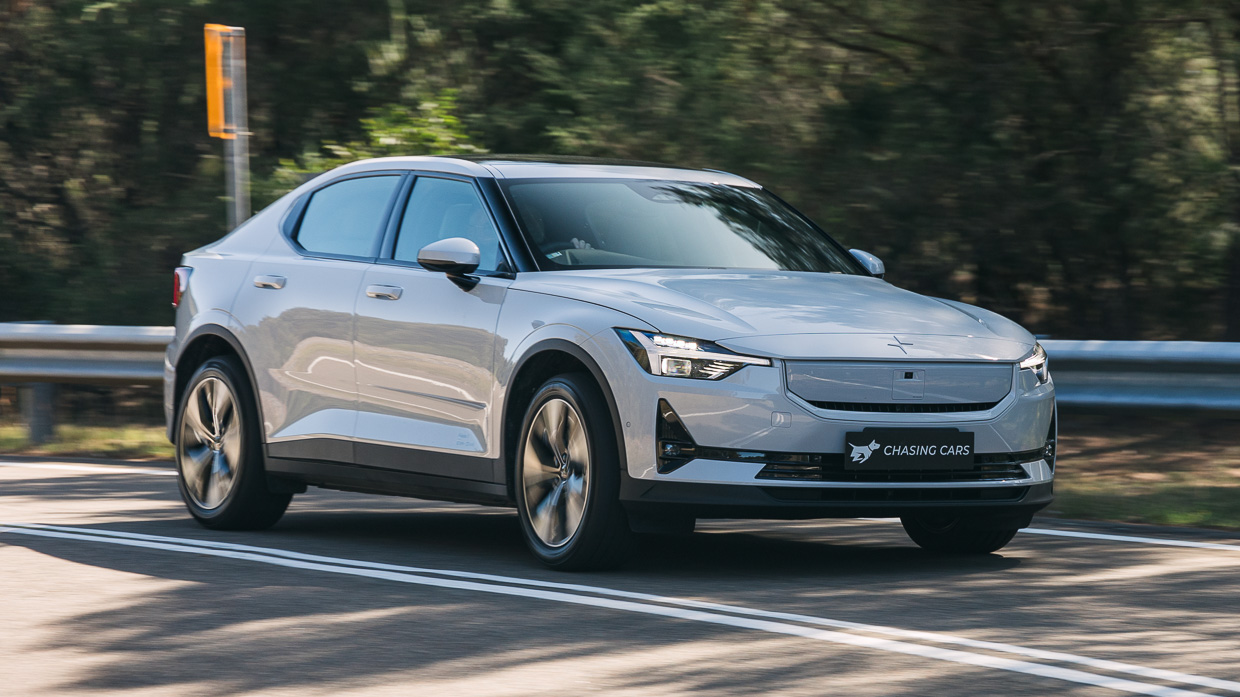
While the MY24 Polestar 2 could never be considered plush – especially when running the recommended 41psi tyre pressures – there’s been a significant reduction in suspension patter and vertical movement, to the benefit of sensitive stomachs everywhere!
The Polestar 2 still feels firm, but its suspension has been finessed to the point where it actually feels reasonably absorbent most of the time, without any detriment to its body control.
There’s still the odd thump from the suspension over bumps, which is most noticeable on otherwise smooth surfaces, but the Polestar 2 is now much more well-rounded in its dynamics.
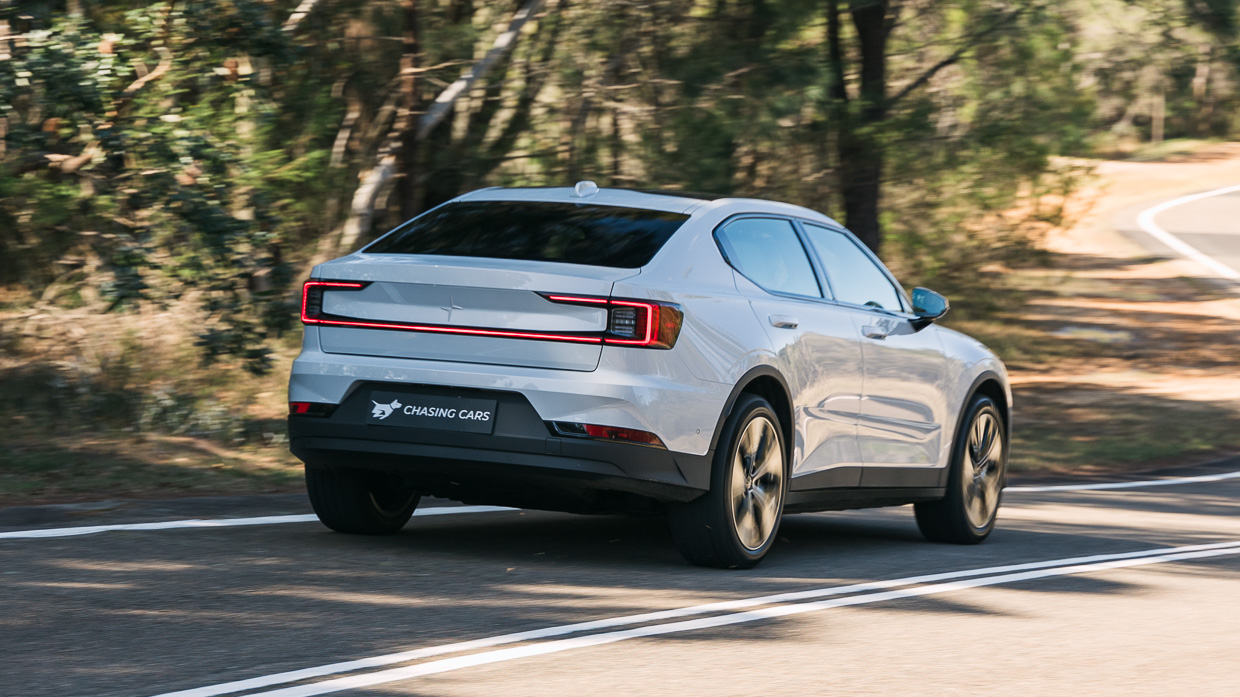
In conjunction with this ride-quality enhancement comes a significant lift in its handling involvement.
Transferring 220kW/490Nm through the rear wheels adds a whole new layer of driver appeal, with throttle-adjustable balance that’s a comparative delight compared to the more two-dimensional flavour of the front-drive version.
Indeed, with the stability-control system set to ESC Sport (via the simple-to-use centre touchscreen), the rear-drive Polestar 2 will now smoothly and safely oversteer when exiting tight corners, and combines this newfound personality with uncorrupted steering and a much more polished overall feel.
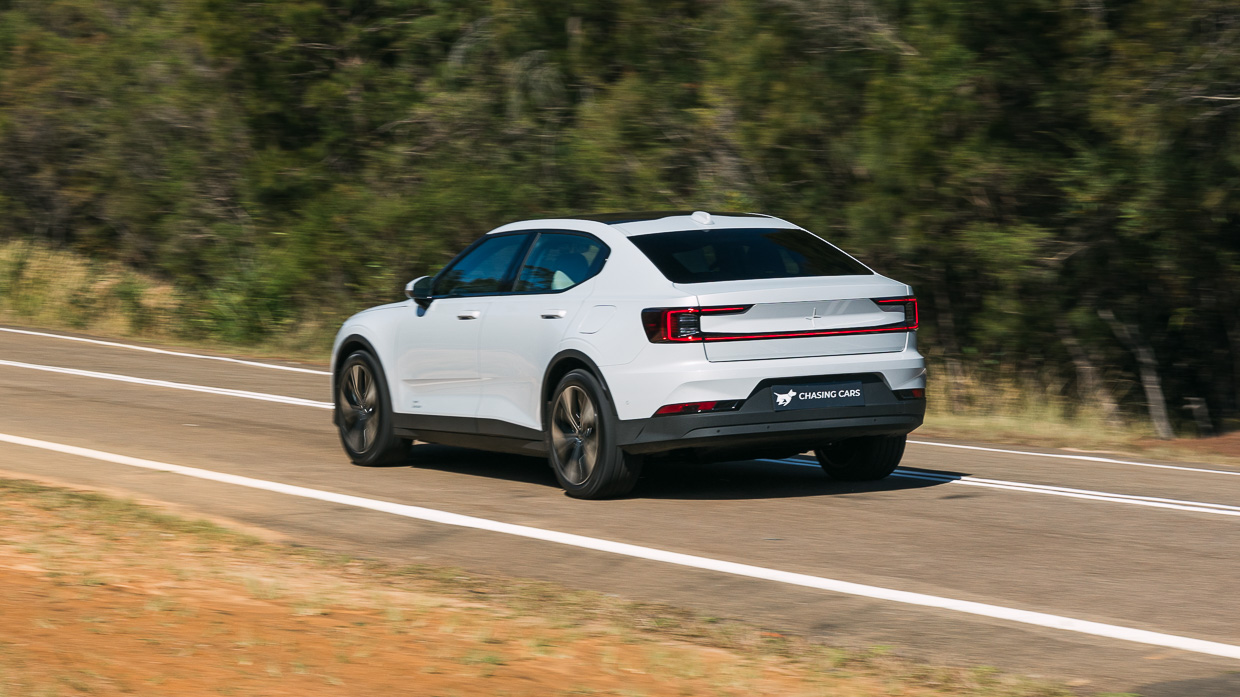
Its ‘One Pedal’ braking performance isn’t quite everything it could be, however, even though it proves highly efficient when regenerating energy back into the battery.
In the ‘Standard’ setting with ‘creep’ turned off, it’ll allow you to come to a full stop without physically touching the brake pedal, but it’s softer in its retardation response than some rivals and offers little in the way of ‘trail braking’ into corners like ‘i-pedal’ does in a Hyundai or Kia EV.
All of which means the Polestar’s ‘One Pedal’ still requires use of both pedals some of the time. And when using the brakes at low speeds, the progression in response could be more linear.
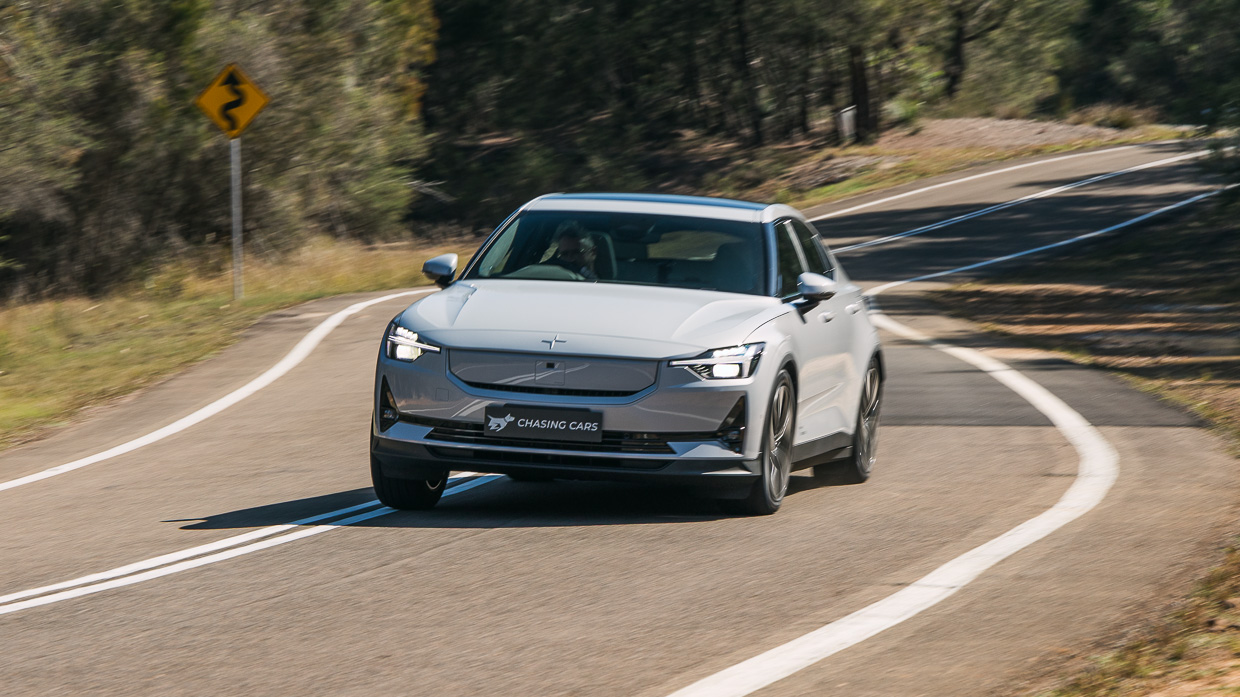
Performance-wise, the Long Range Polestar 2 also feels more than ample. Low-speed overtaking manoeuvres are effortlessly dispatched, and with its 0-100km/h time now down to the low sixes, the Polestar 2 offers nicely progressive yet satisfyingly urgent acceleration.
It’s sweetly refined, too, with a pleasing absence of any artificial acoustics to muddy its EV slickness.
Right from its global launch in 2020, the Polestar 2’s interior has stood out for its interesting use of textures, the superb clarity and user-friendliness of its screens, and its Scandinavian warmth … even though it’s built at Polestar’s factory in Luqiao, China.
Build quality looks and feels expensive – much like sister brand Volvo – with our test car’s combination of optional zinc Nappa leather (with perforated centres and suede highlights) and light ash deco wood inlays evoking the classy minimalism of pricey furniture.
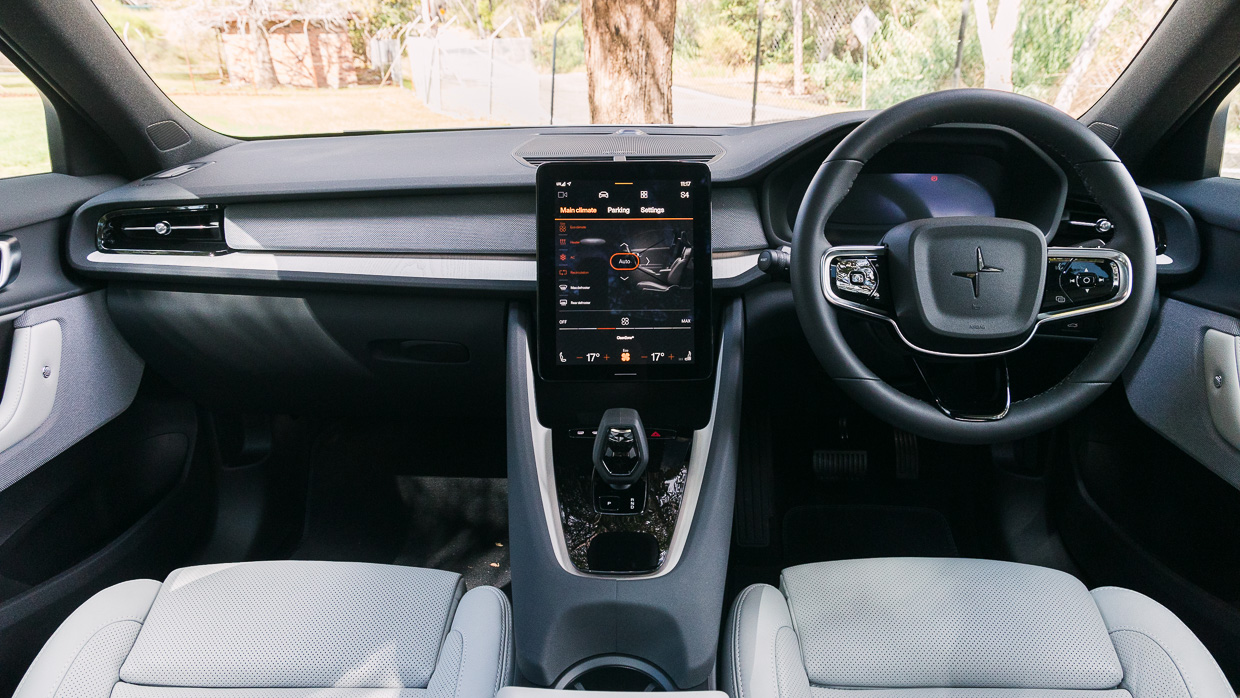
Even with charcoal-coloured headlining, this Polestar 2’s light-coloured trim and optional all-glass roof make its cabin feel both airy and calming.
Yet even the darker interior colours successfully blend this ‘light and shade’ textural approach, which really sets the Polestar apart compared to the cold austerity of its Tesla Model 3 rival.
Seat comfort in all four outer positions is excellent (though full electric front seat adjustment is optional), with a supportive, figure-hugging feel. But the centre-rear position is a criminal sentence, combining a rock-hard cushion, uncomfortable backrest and oddly intrusive centre tunnel hump.
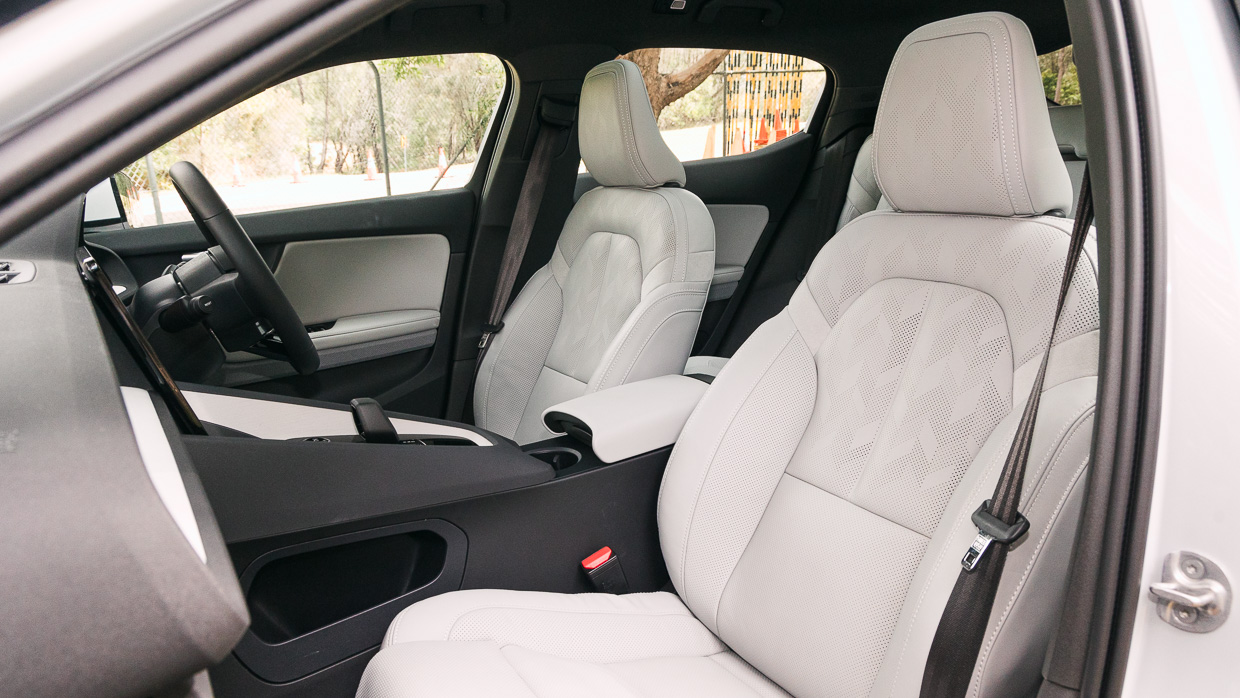
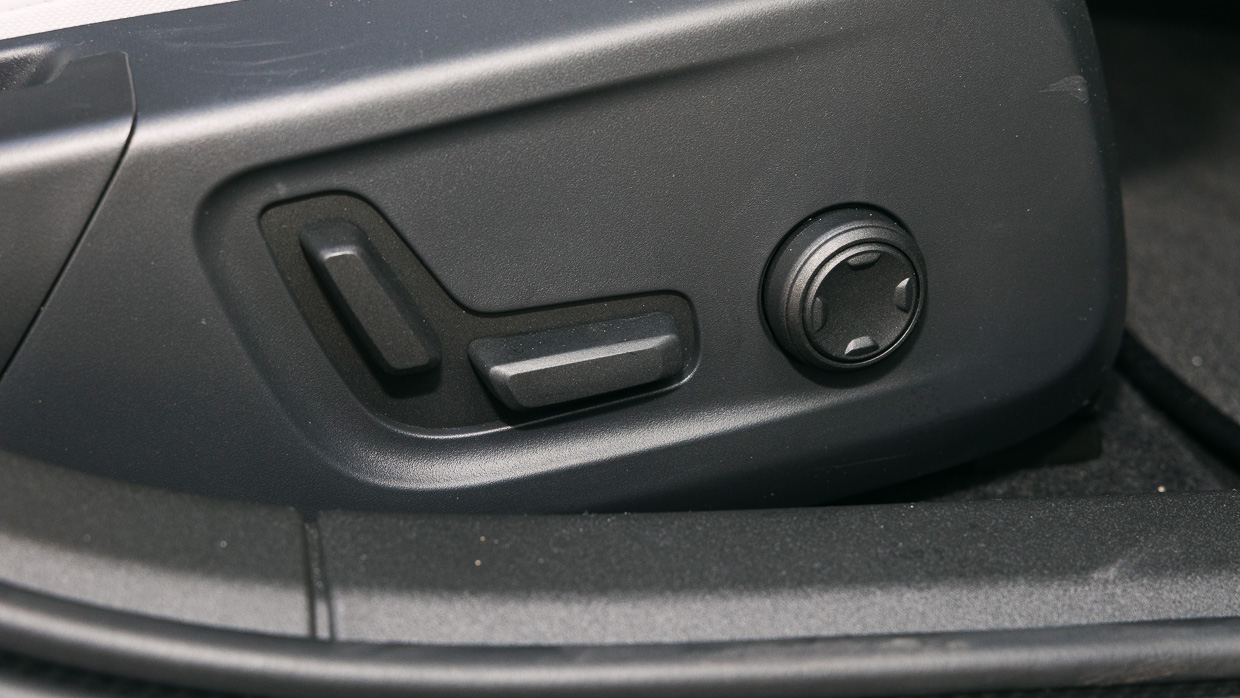
Rear headroom is also limited for any adults much taller than 180cm when the glass roof is fitted seeing the rear backrest angle is also fairly upright, and toe room is also tight below the front seats if they’re adjusted low. But most bodies should bond with the front buckets.
We should point out that the significant taper and ‘tumblehome’ of the Polestar 2’s glasshouse does make its cabin feel more intimate than its overall dimensions might suggest.
Many will appreciate the sportiness of this design approach, while others may wish for a glassier feel … which is where Polestar’s forthcoming SUV models (Polestar 3 and 4) step in.
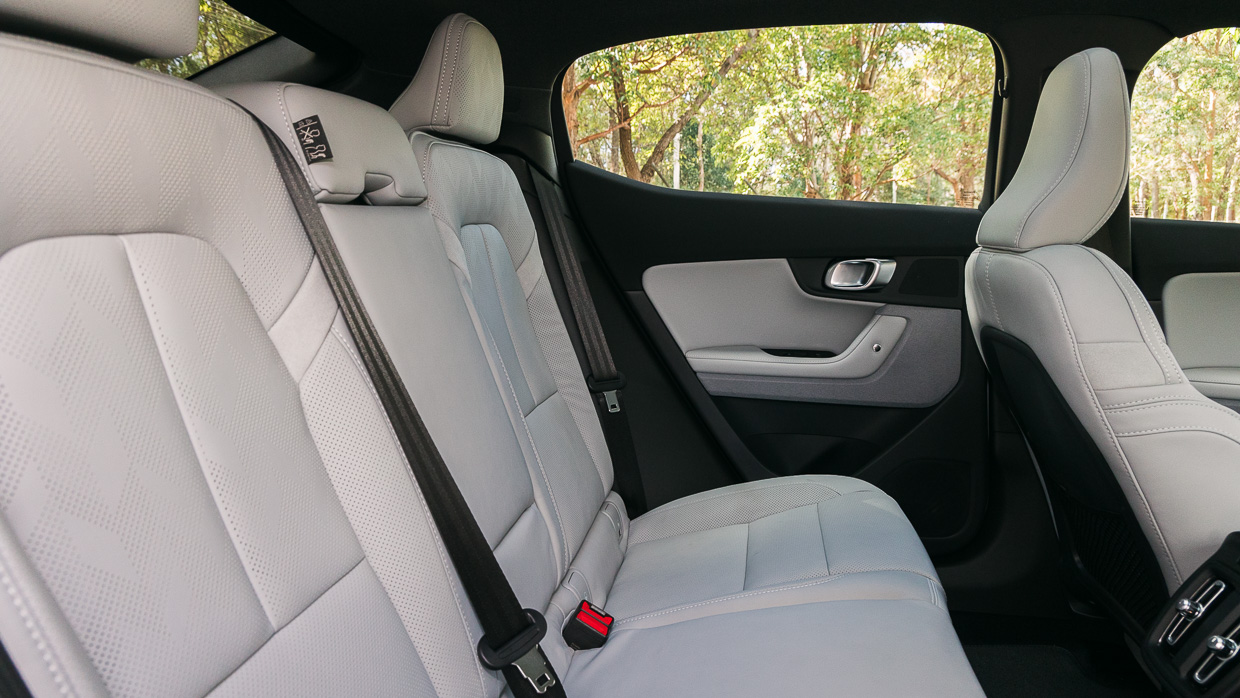
Given the Polestar 2’s in-cabin intimacy, it’s probably no surprise that its storage is acceptable but nothing more.
Front door space is okay – better than the small cubbies in the rear – while the centre section between the front seats houses little more than a pair of cupholders, a wireless charging pad with two USB-C ports next to it, and a pair of small rubberised bins on either side of the centre tunnel.
Rear-seat passengers get air vents (but no temperature control), a pair of USB-C ports, a 12-volt outlet and another pair of cupholders in the fold-down centre armrest.
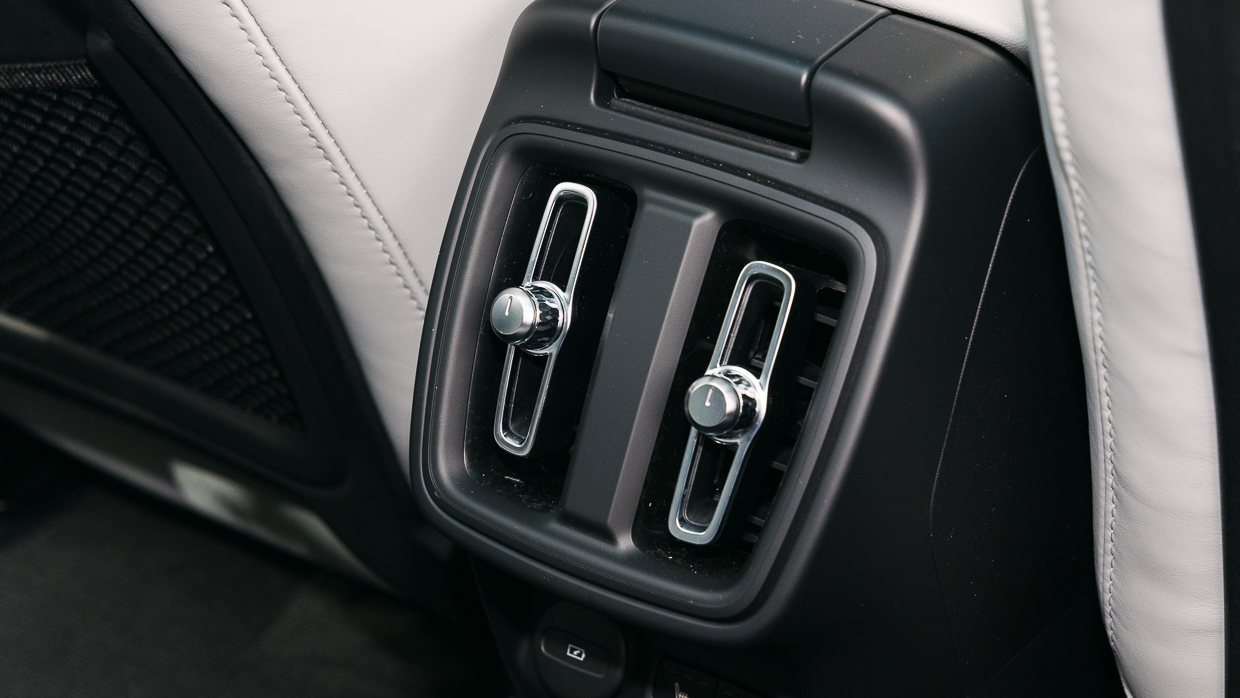
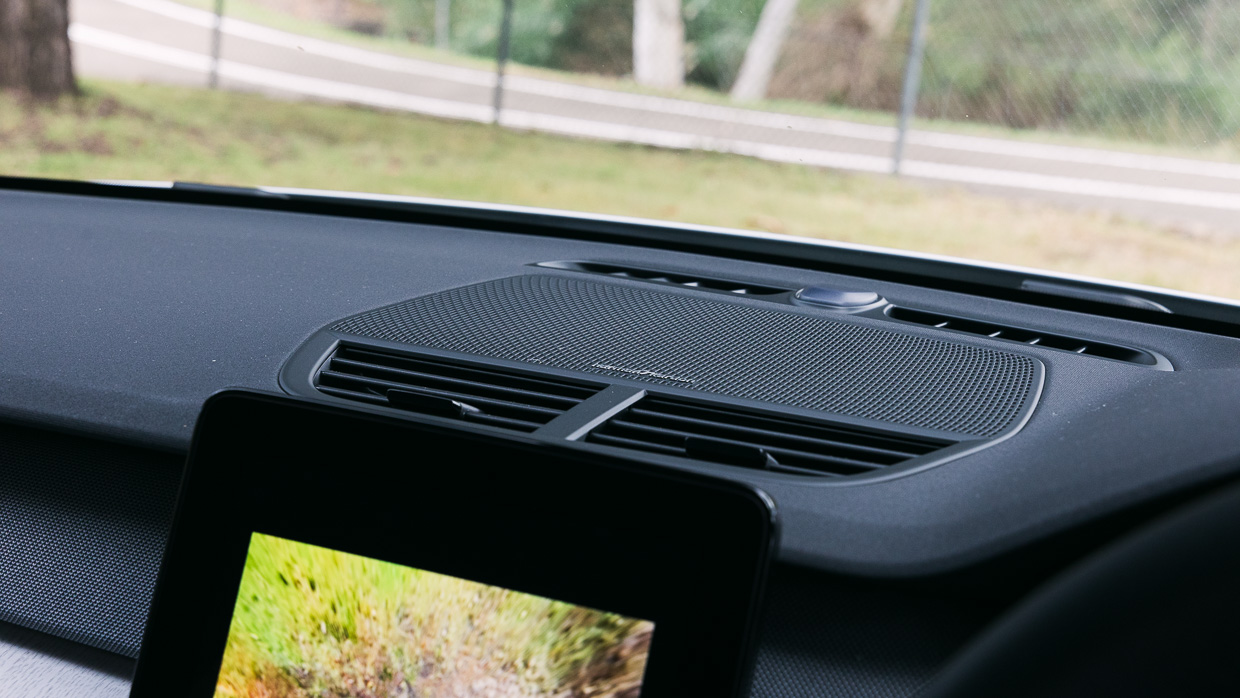
With its ‘fastback’ shape, the Polestar 2 is actually a liftback rather than a sedan, with its large tailgate (optional electric in our test car) accessing a roomy 405-litre boot that can be extended by 60/40 rear backrests that fold almost flat.
There’s also a deep additional cargo area below the rear floor, plus another more modest area beneath the bonnet that also stores the charging cords.
As for audio quality, our test car featured Polestar’s optional 600-watt, 13-speaker Harman Kardon stereo, which offers robust sound when playing contemporary music types, and works extremely well via Polestar’s superb 11.2-inch portrait touchscreen (complementing a similarly slick 12.3-inch driver’s display).
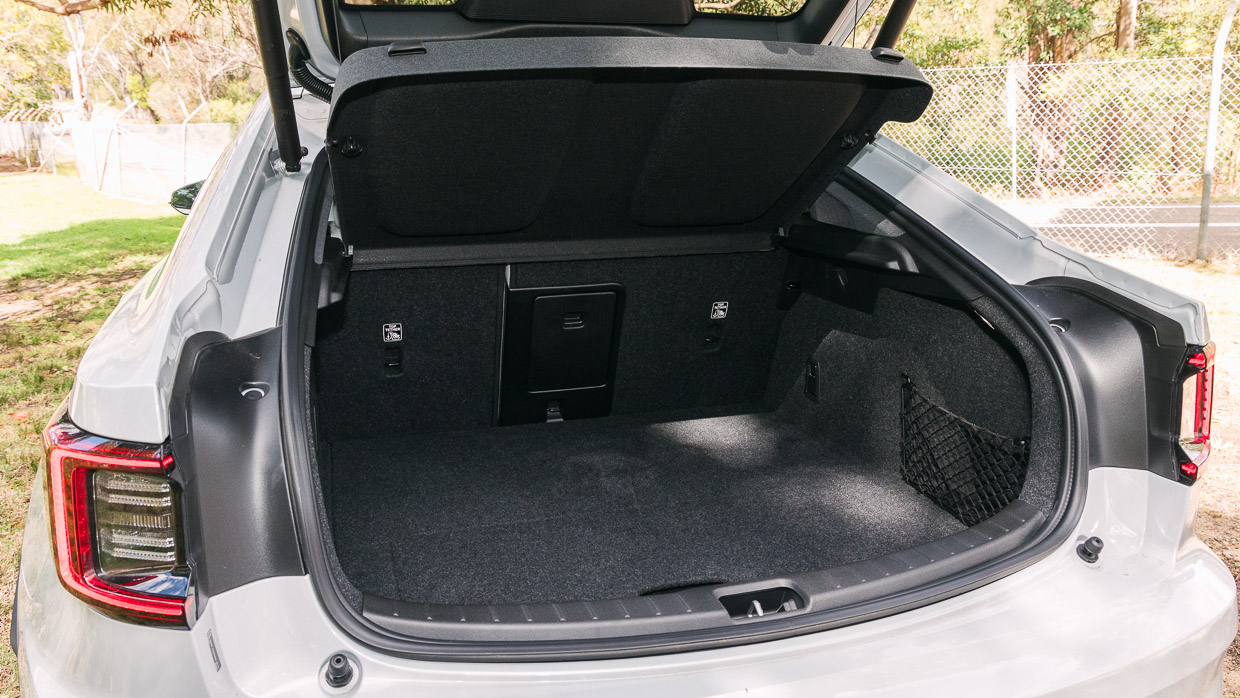
Once (easily) mastered, all screen controls are simple, quick and effortless, though Apple CarPlay/Android Auto requires a physical connection to operate.
The Polestar 2 also has full Google integration – meaning you don’t have to touch the screen to change the temperature in the cabin, enter navigation details, increase the audio volume or change playlists – you simply say ‘Hey Google’ and enter a command.
If you have Google Home, you can turn the house lights on from the car.
When tested by Euro NCAP in 2021, the Polestar 2 received a five-star rating, with excellent scores in all disciplines – 92 percent for adult occupant protection, 87 percent for child occupant protection, 80 percent for vulnerable road user protection, and 82 percent for safety assist systems.
In our on-road testing, the Polestar 2’s (optional) adaptive cruise control worked seamlessly and effectively, while its lane-keeping aids proved conscientious in their monitoring of the vehicle but also relatively subtle in their steering assistance.
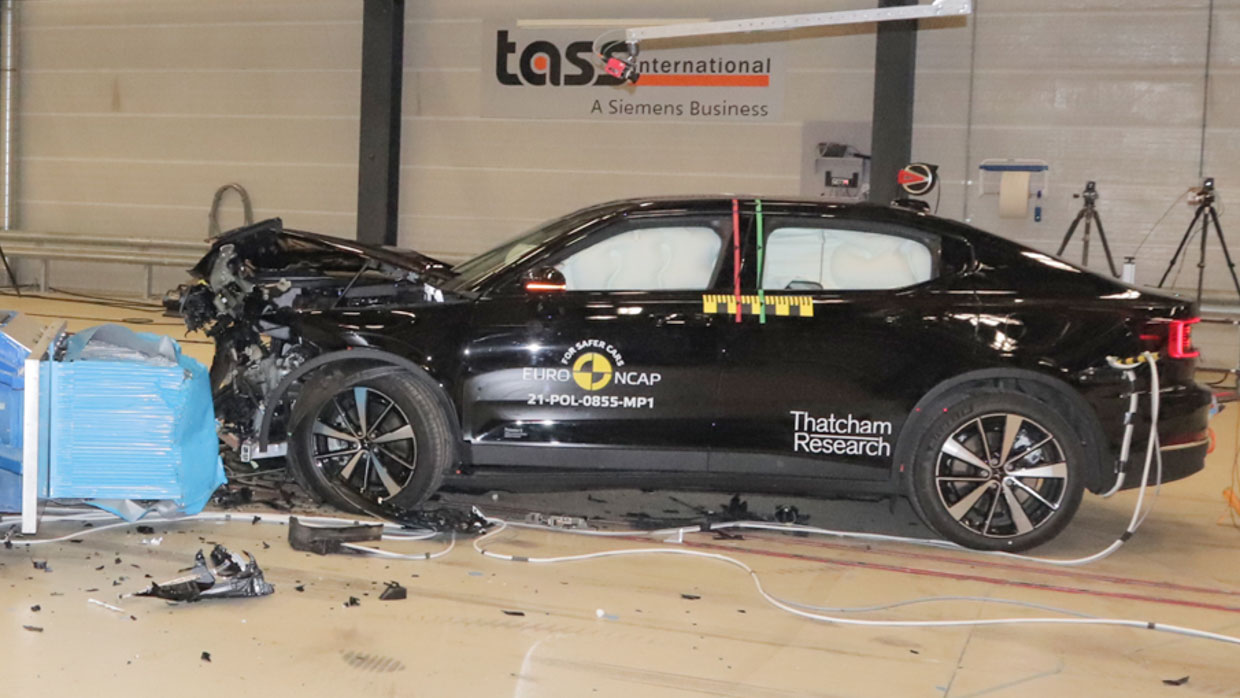
Standard safety equipment fitted to the Polestar 2 includes:
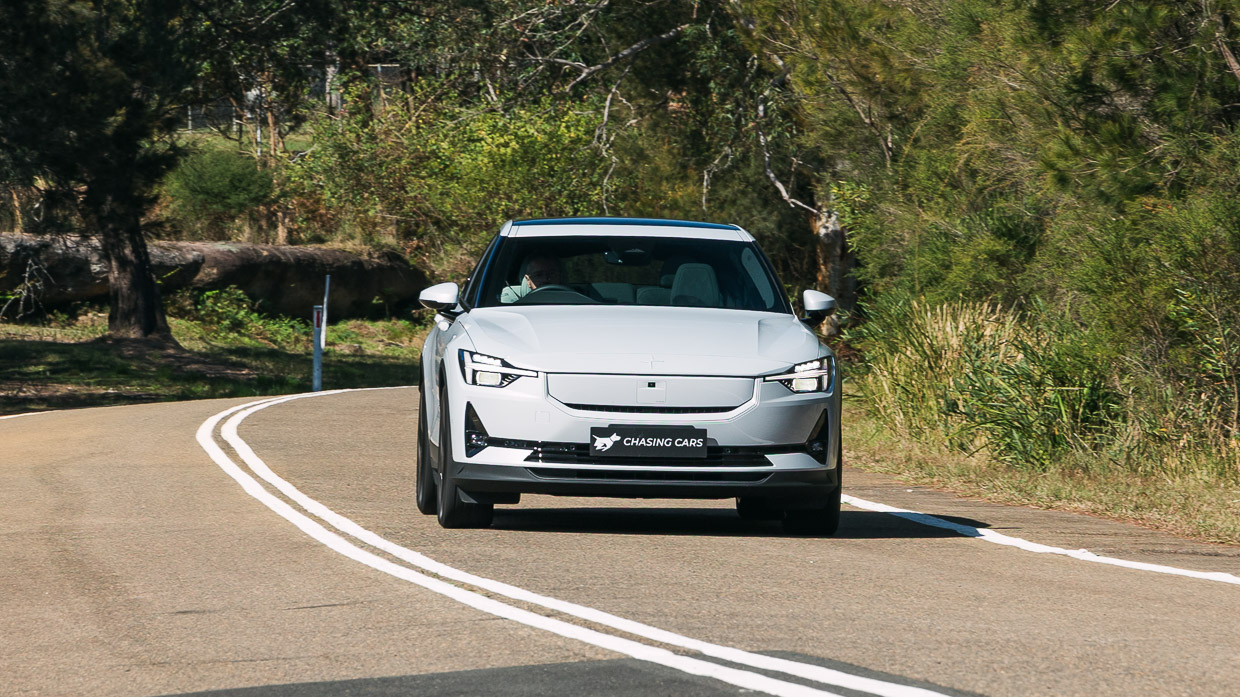
An optional Pilot pack ($3500) expands this extensive active-safety suite with:
The Polestar 2 Long Range’s official combined energy consumption range is 14.8-17.2kWh/100km, while its stated WLTP range is 654km.
Based on our overall test average of 20.0kWh/100km, and a useable battery capacity of 79kWh, the predicted overall range of our test car was 390km though it’s important to note this figure did involve some hard driving on challenging roads.
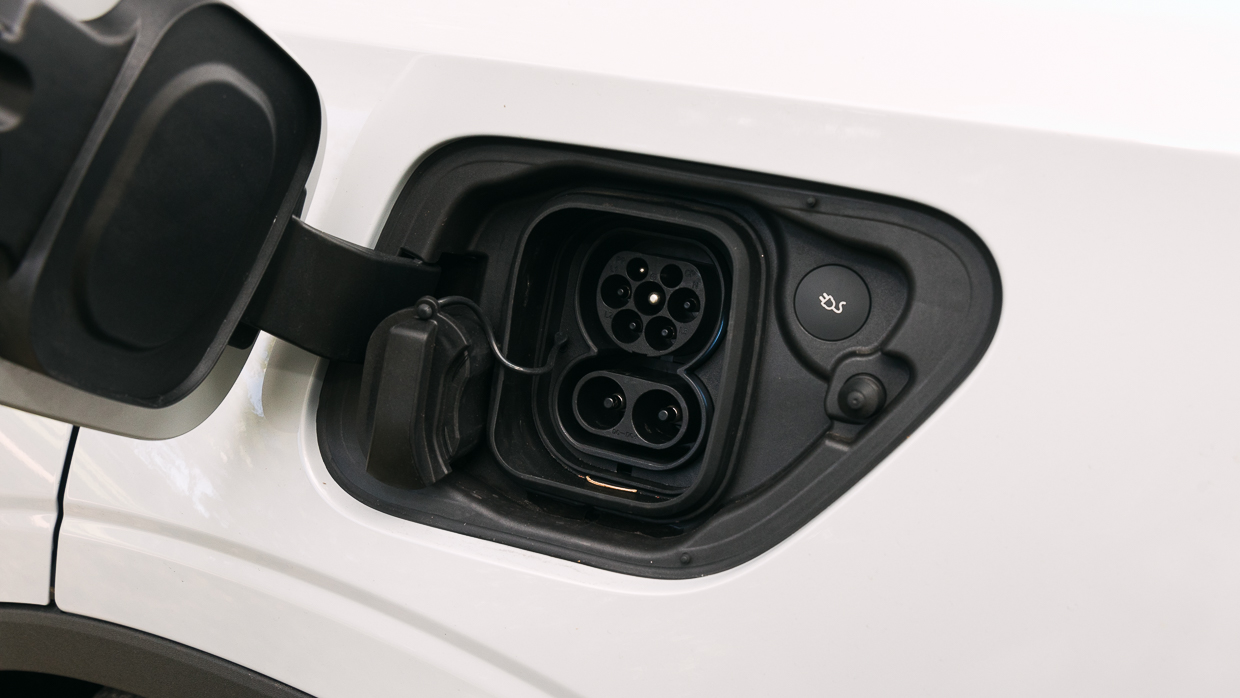
However, Chasing Cars then put this model through our official range test and saw a predicted range of 658km in urban areas and 533km on the highway, based on an as-tested efficiency of 12kWh/100km and 14.8kWh/100km respectively.
These are impressive results for an electric vehicle, besting the 452km urban and 442km highway range figures seen when testing the Model 3 RWD, which admittedly has a smaller battery and much smaller price tag.
Recommended service intervals for the Polestar 2 can extend to two years or 30,000km, depending on vehicle use, though its on-board diagnostics will alert if additional servicing is necessary. Polestar includes complimentary servicing for the first five years.
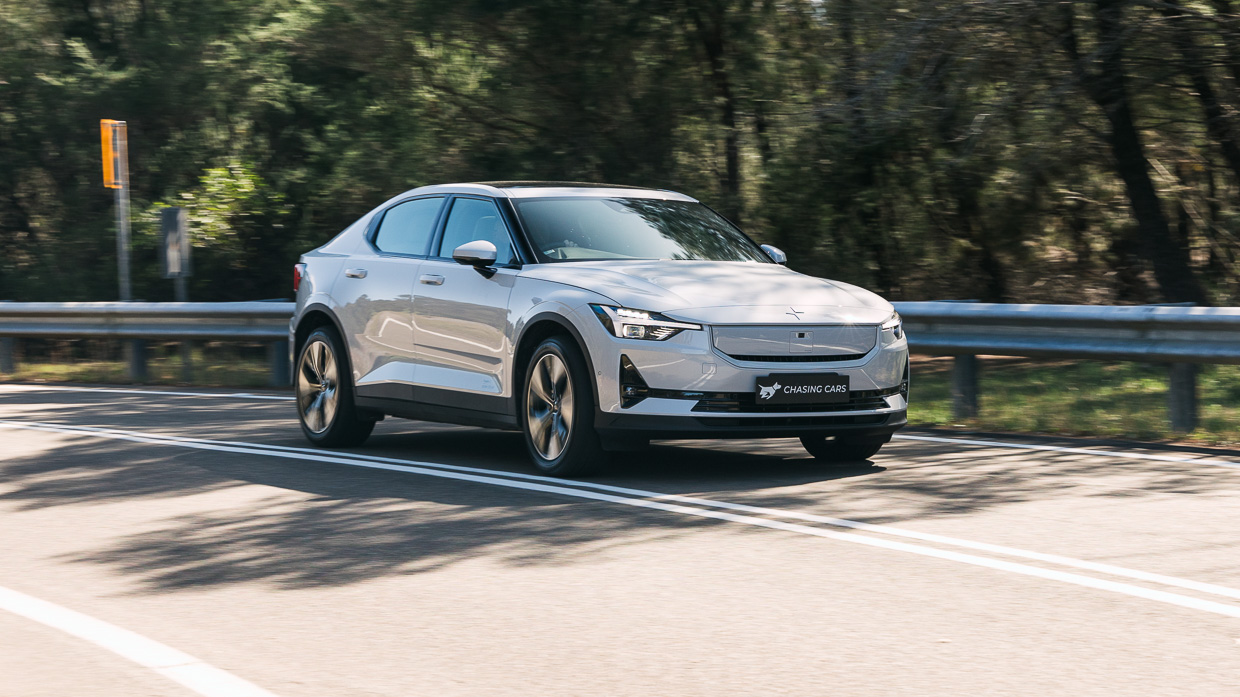
Polestar’s warranty in Australia is five years/unlimited kilometres, with included roadside assistance for the same period.
The battery is covered by an eight-year/160,000km warranty, though if the battery’s State-of-Health (SoH) drops below 70 percent of its original capacity within this eight-year period, Polestar will replace the battery free of charge.
Given its combination of involving rear-drive handling with genuinely quick acceleration, it’s encouraging to know that all of Polestar’s engineering enhancements have achieved tangible improvements in the driving performance and personality of the MY24 Long Range Polestar 2.
Concentrating on aspects that needed improvement, such as its ride quality, while leaving much of the car unchanged perhaps undersells the MY24 Polestar 2’s genuine advancement. But almost identical looks aside, this is a much-improved EV.
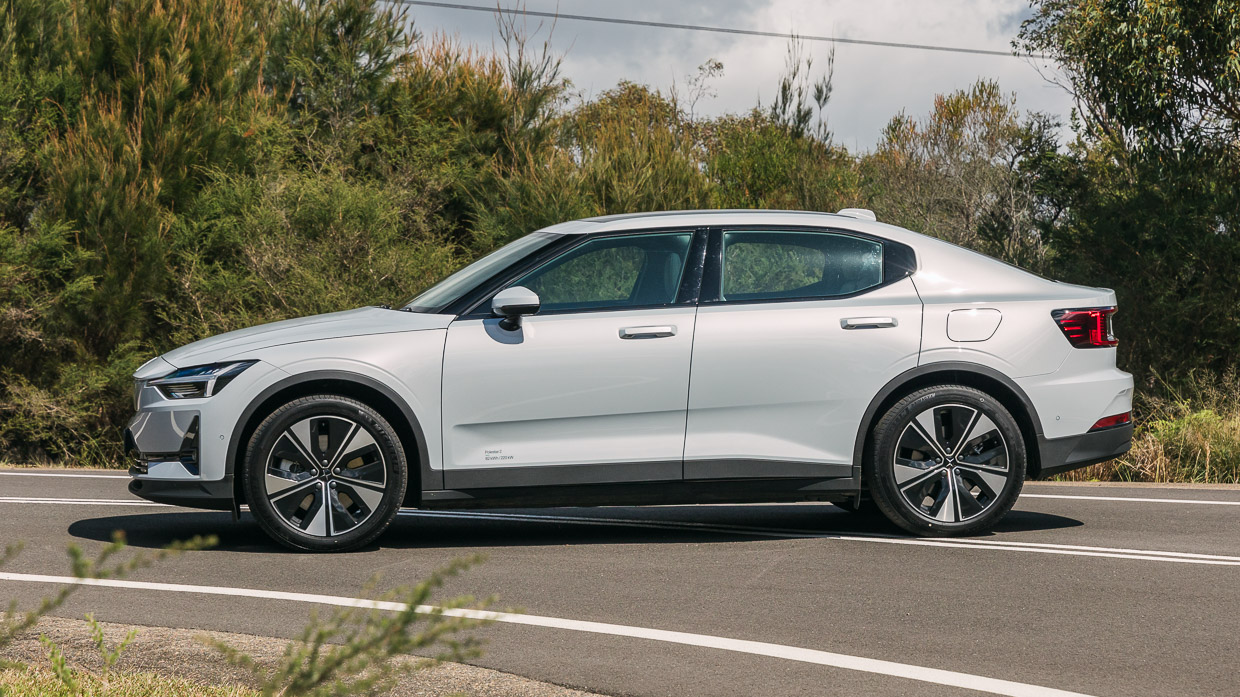
The cosy warmth of its cabin, its superb screen legibility, and the general ease-of-use in everything it does reeks of engineering expense. And it’s nice to know that you can travel further than ever in a 2024 Polestar 2 without having to charge it.
Taken as a whole, this is an excellent EV that is both great to sit in and great to drive.
Key specs (as tested)
About Chasing cars
Chasing Cars reviews are 100% independent.
Because we are powered by Budget Direct Insurance, we don’t receive advertising or sales revenue from car manufacturers.
We’re truly independent – giving you Australia’s best car reviews.
The estimate provided does not take into account your personal circumstances but is intended to give a general indication of the cost of insurance, in order to obtain a complete quote, please visit www.budgetdirect.com.au. Estimate includes 15%^ online discount.
^Conditions Apply
Budget Direct Insurance arranged by Auto & General Services Pty Ltd ACN 003 617 909(AGS) AFSL 241 411, for and on behalf of the insurer, Auto & General Insurance Company Limited(ABN 42 111 586 353, AFSL 285 571).Because we don’t know your financial needs, we can’t advise you if this insurance will suit you. You should consider your needs and the Product Disclosure Statement before making a decision to buy insurance. Terms and conditions apply.
Indicative quote based on assumptions including postcode , 40 year old male with no offences, licence suspensions or claims in the last 5 years, a NCD Rating 1 and no younger drivers listed. White car, driven up to 10,000kms a year, unfinanced, with no modifications, factory options and/or non-standard accessories, private use only and garaged at night.
^Online Discounts Terms & Conditions
1. Discounts apply to the premium paid for a new Budget Direct Gold Comprehensive Car Insurance, Third Party Property Only or Third Party Property, Fire & Theft Insurance policy initiated online on or after 29 March 2017. Discounts do not apply to optional Roadside Assistance.
2. Discounts do not apply to any renewal offer of insurance.
3. Discounts only apply to the insurance portion of the premium. Discounts are applied before government charges, taxes, levies and fees, including instalment processing fees (as applicable). The full extent of discounts may therefore be impacted.
4. We reserve the right to change the offer without notice.